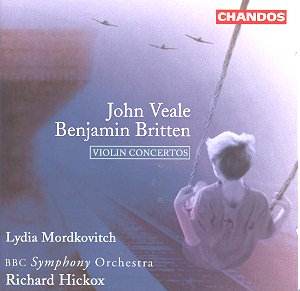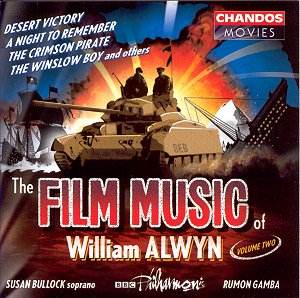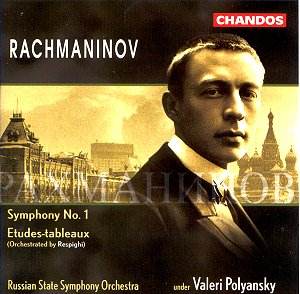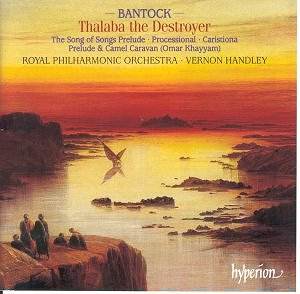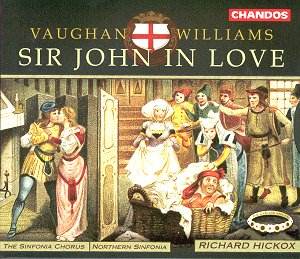 Composer: Ralph Vaughan Williams (1872 – 1958)
Composer: Ralph Vaughan Williams (1872 – 1958)
Work: Sir John in Love (1924/8)
Performers: Donald Mitchell (Falstaff), Laura Claycomb (Mrs Page), Sarah Connolly (Mrs Ford), Anne-Marie Owens (Mrs Quickly), Matthew Best (Mr Ford), Roderick Williams (Mr Page), Stephen Varcoe (Sir Hugh Evans), Adrian Thompson (Dr Caius), Stephen Loges (Host of the Garter), Susan Gritton (Anne Page), Mark Padmore (Fenton)
Chorus: Sinfonia Chorus
Orchestra: Northern Sinfonia
Conductor: Richard Hickox
Recorded: Jubilee Hall, Newcastle, December 2000
Label: Chandos CHAN 9928
Duration: 68:05 + 68:34
In this splendid new recording of Ralph Vaughan Williams’ Sir John in Love, conductor Richard Hickox presents a compelling interpretation of the composer’s only operatic foray into the Shakespearean realm. The work, a delightful reimagining of Shakespeare’s The Merry Wives of Windsor, reveals Vaughan Williams at his most whimsical, yet also at his most insightful, as he navigates the complexities of love, jealousy, and human folly.
Vaughan Williams’ score is a vibrant tapestry of musical styles, seamlessly weaving together elements of folk tradition, Elizabethan lyricism, and his own distinct harmonic language. The composer adeptly prunes Shakespeare’s text, enhancing it with interpolations of Elizabethan lyrics. This artistic choice, while perhaps controversial to purists, allows for a richer operatic experience, providing singers with ample opportunities for lyrical expression and dramatic interplay. Hickox’s inclusion of the short episode in Act I, absent from Meredith Davies’ earlier EMI recording, showcases an awareness of the opera’s narrative flow, adding depth to the characterizations.
Donald Mitchell imbues Falstaff with a delightful blend of bombast and vulnerability, capturing the essence of Shakespeare’s intricate character. His portrayal is particularly effective in the rollicking Drinking Song, where his voice, lush and resonant, invites the listener into the revelry of Windsor. The ensemble’s buoyancy is a testament to Hickox’s deft hand; the Northern Sinfonia responds with commendable energy, reflecting the opera’s spirited humor and underlying poignancy.
The female voices shine throughout the performance, particularly in the aforementioned delightful Trio, “Sigh no more, ladies,” where the blend of voices creates a shimmering tapestry of sound. Laura Claycomb’s portrayal of Mrs Page is marked by both agility and warmth, while Sarah Connolly’s Mrs Ford balances mischievousness with depth of character. The arias stand out for their lyrical beauty; Anne’s aria, “This is my father’s choice,” is a moment of introspective clarity, beautifully rendered by Susan Gritton, whose expressive phrasing reveals the character’s internal conflict.
Matthew Best’s performance as Mr Ford, while perhaps lacking the gravitas of Robert Lloyd in previous recordings, nevertheless conveys the character’s emotional turmoil with clarity. His explosive “Cuckold!” echoes through the hall, resonating with both comedic and tragic undertones. The interplay between Best and Mitchell during these moments of jealousy and deceit is particularly effective, highlighting Vaughan Williams’ skill in crafting dramatic tension through music.
Hickox’s conducting is marked by a palpable love for Vaughan Williams’ idiom. He understands the delicate balance between comedy and pathos, ensuring that neither dominates the other. The orchestral colors are finely etched, with each section of the Northern Sinfonia contributing to the overall buoyancy of the score. The engineering captures this warmth beautifully, allowing for a rich, immersive listening experience. Chandos has once again delivered a recording that honors the subtleties of the score while presenting it in vibrant sound.
The historical significance of Sir John in Love cannot be overstated. It stands as a testament to Vaughan Williams’ ability to draw upon the folk traditions of his British heritage while simultaneously engaging with the operatic conventions of his time. The work reflects a burgeoning interest in English identity during the early 20th century, encapsulated in its blend of lightheartedness and depth. Vaughan Williams’ music resonates with the same universality found in Shakespeare’s text; it speaks to the follies of love that remain relevant across generations.
In conclusion, Hickox’s recording of Sir John in Love stands not only as a worthy alternative to Davies’ esteemed interpretation but also as an invitation for those unfamiliar with this charming opera. It is a vibrant, engaging performance that captures the essence of Vaughan Williams’ genius—his ability to illuminate the human experience through music. For listeners seeking a delightful musical experience imbued with both humor and tenderness, this recording is an essential addition to any collection.
